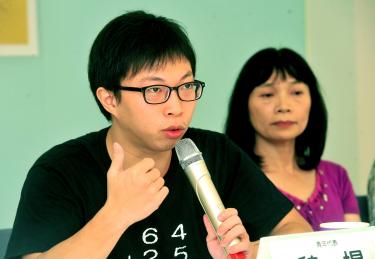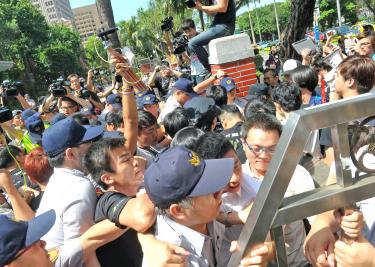Tens of thousands of pro-democracy protesters marched in Hong Kong yesterday, with many calling for the territory’s leader to be sacked, in what could turn out to be the biggest and most passionate challenge to Chinese Communist Party rule in more than a decade.
Hong Kong Chief Executive Leung Chun-ying (梁振英) said his government would do its “utmost” to move toward universal suffrage and stressed the need for stability after nearly 800,000 voted for full democracy in an unofficial referendum.














